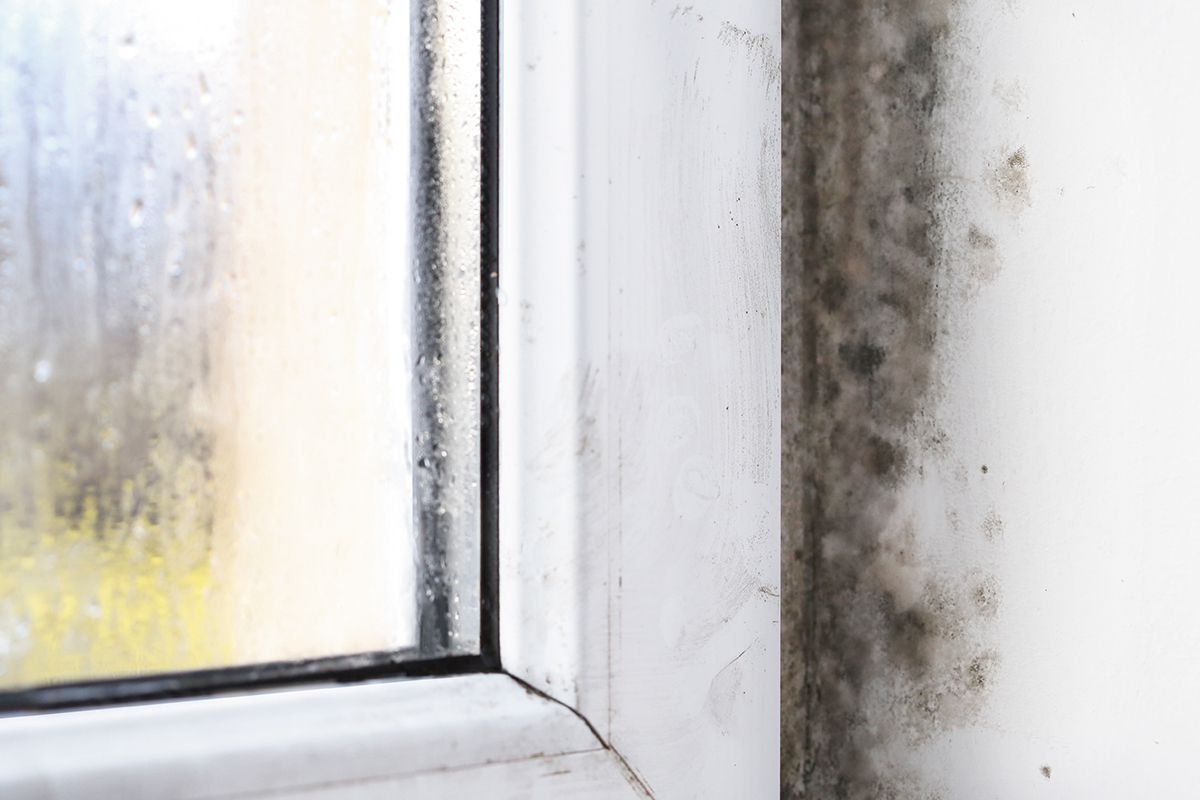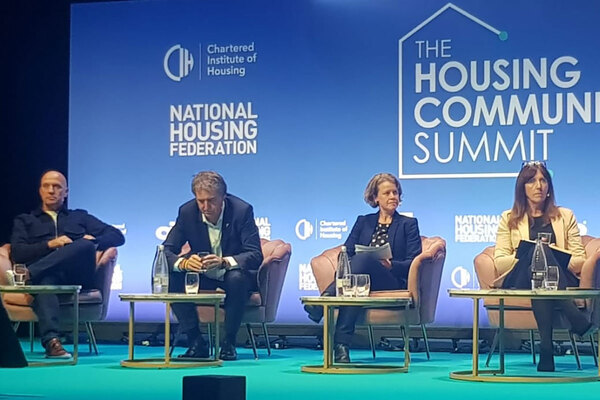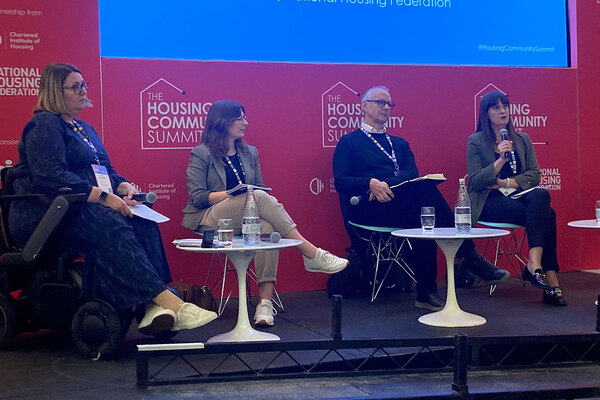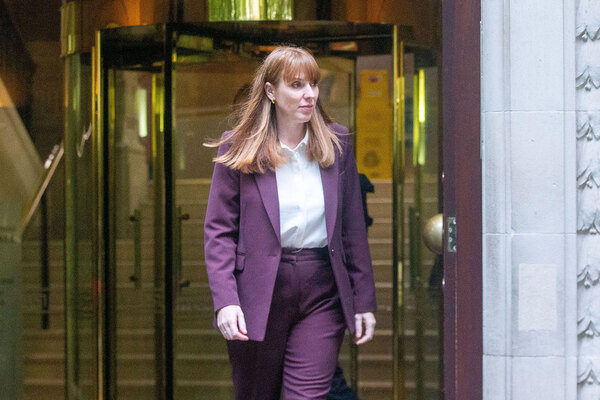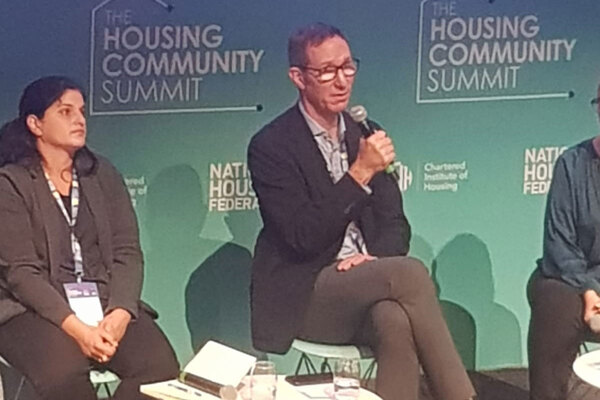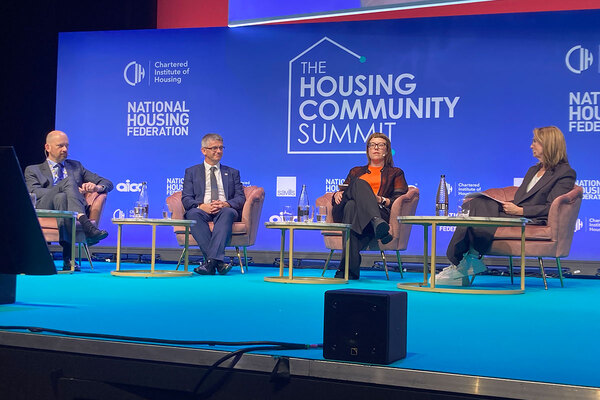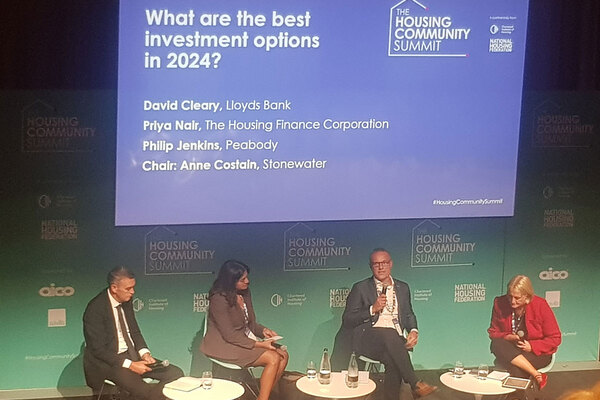You are viewing 1 of your 1 free articles
Landlords asked to reveal damp and mould strategies in ESG reporting standard overhaul
Housing associations will be expected to give extra information about their stock quality, including their approach to damp and mould issues, as part of an overhaul of a sector reporting standard.
The changes to the Sustainability Reporting Standard for Social Housing (SRS) will include a bigger focus on stock quality, particularly how landlords manage and mitigate damp and mould risks, plus data on gas safety checks and fire, asbestos and legionella risk assessments.
The SRS was launched in late 2020 in a bid to attract funds from investors focused on environmental, social and governance (ESG) credentials.
Since the launch, around 160 organisations, including housing associations and funders have signed up.
The standard is now being updated amid a focus on poor housing conditions, with a consultation being launched this month.
Brendan Sarsfield, chair of Sustainability for Housing (SfH), the group overseeing the SRS, said: “The worlds of ESG and social housing continue to evolve at pace and ESG reporting needs to keep up.”
Mr Sarsfield, who is also the former chief executive of Peabody, added: “This new draft version of the standard has been created in consultation with the housing and finance sectors and hopefully meets new emerging demands whilst recognising the importance of continuity.”
The social housing sector has been thrown into the media spotlight in the past two years following a series of shocking incidents involving poor housing standards.
The government is aiming to address some of these issues in its Social Housing (Regulation) Bill, which is in its final stages in parliament before becoming law.
Under the new SRS, landlords will also be expected to include net zero strategies, retrofit and environmental disclosures such as Standard Assessment Procedure (SAP) ratings, as well as Energy Performance Certificate (EPC) requirements. The SAP methodology underpins EPC ratings.
Information on organisations’ equality, diversity and inclusion policies will also be needed, plus approaches to staff training and professional development.
The newly updated standard will also include a ‘comply or explain’ approach and a requirement to show year-on-year data.
The consultation is seeking views from all the standard’s adopters, endorsers and “other interested parties”.
Sarah Smith, chief financial officer at Southern Housing and an SfH board member, said: “Demand for investment in ESG areas such as social housing is only going to grow and the sector needs to be alive to this opportunity as it looks to tackle the housing crisis.
“The sector also needs to maintain its solid reputation when it comes to ESG reporting, which is why SfH has sought to tighten up key areas of focus within the SRS.”
Sign up for our asset management newsletter
Already have an account? Click here to manage your newsletters
